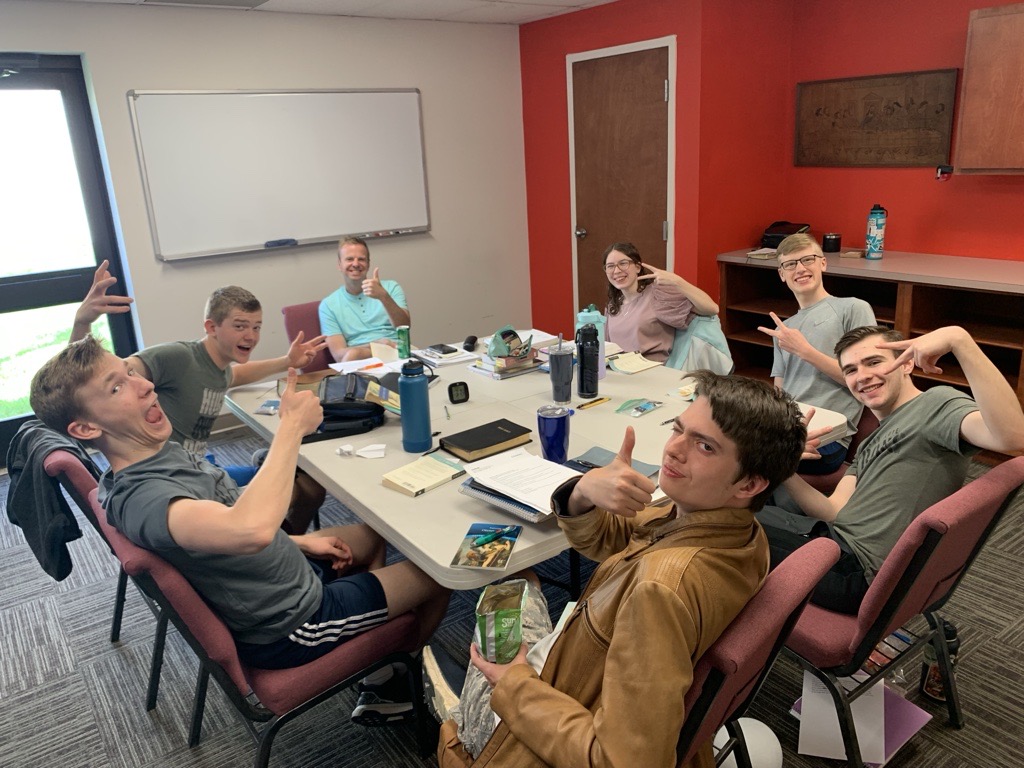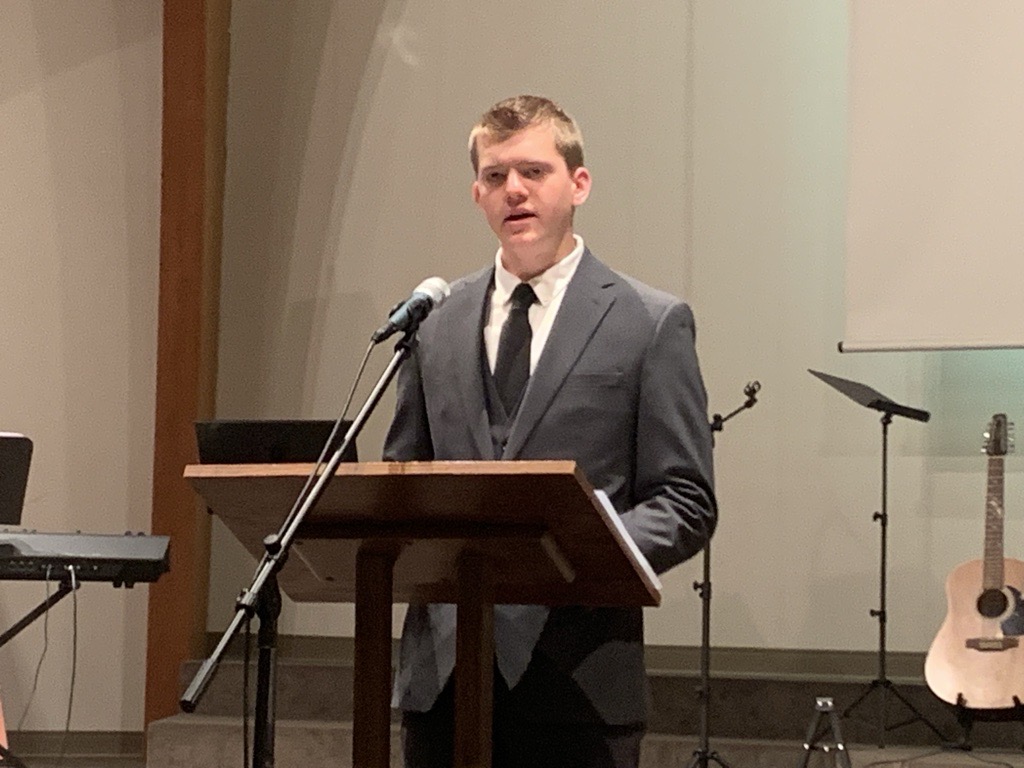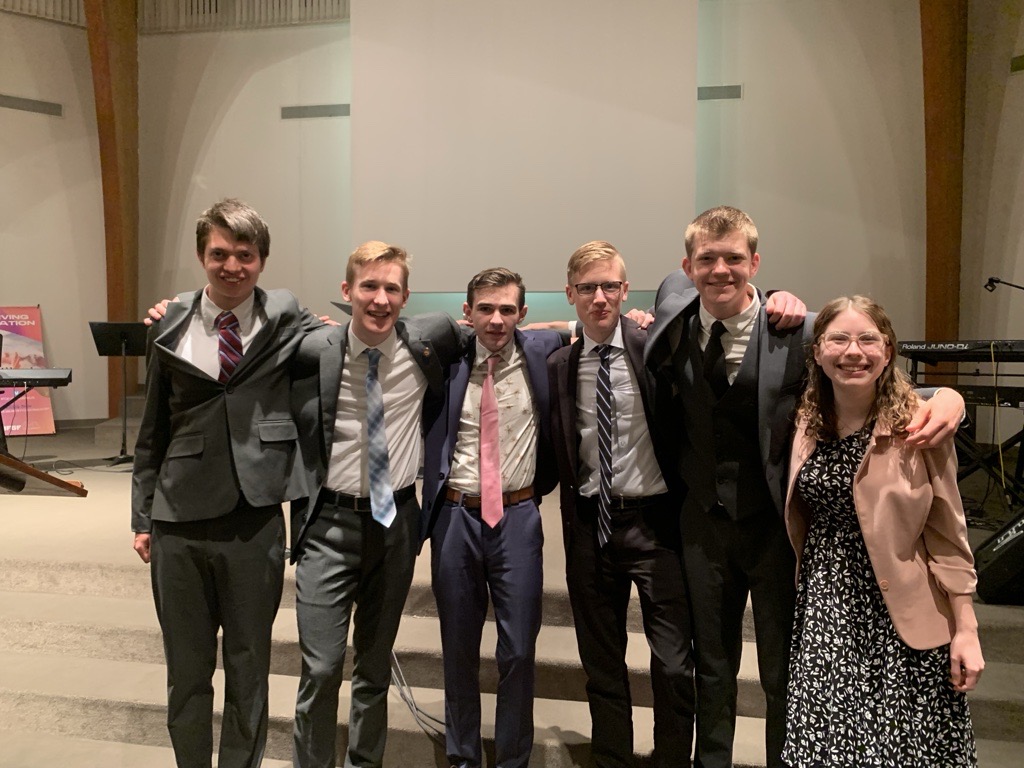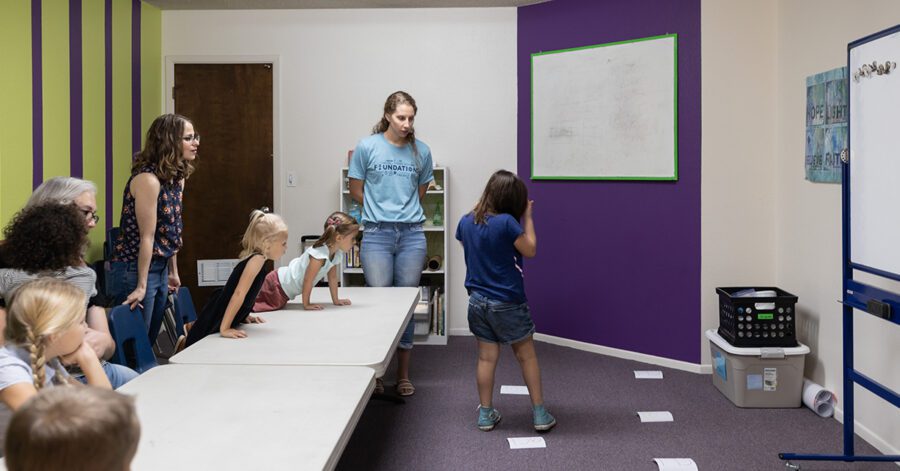The top tip for senior thesis success? Trust the process—your student has been preparing for this capstone moment through years of classical learning, and they’re more ready than they realize.
If you’re a Challenge IV parent, you want this capstone experience to be everything it should be: a celebration of classical learning and a confident launch into your student’s next chapter. But knowing how to best support your emerging scholar can feel overwhelming.
CC mom and Challenge Director, Jennifer Hester, has walked this Senior Thesis journey with two of her three boys. She recently reached out to seasoned Challenge IV Directors and academic advisors to gather their most valuable guidance.
What she discovered is that this milestone is all about preparation, courage, and trusting the process you’ve been building toward for years. In this article, Jennifer will reveal what works when it comes to make the process of Senior Thesis sustainable and successful.
Challenge IV Preparation: Why Senior Thesis Feels Like a Roller Coaster
Every summer, our youth group takes a trip to Six Flags in Atlanta, Georgia. My kids and I are huge fans of roller coasters—the bigger and faster, the better. The higher or scarier the ride looks, the more likely you’ll find us waiting in line for the front row.
As I sat down to reflect on my family’s homeschooling journey and the completion of two senior theses, I began thinking about how to capture this beautiful, capstone season for parents just entering it. My mind went straight to Six Flags.
For us, there’s the excitement of arriving at the park, walking toward the ticket line while coasters roar overhead, and listening to stories from those who have already braved the rides. For others, it’s a scary time of facing the unknown, unsure of what to expect, and relying on someone who’s gone before you to assure you it will be okay.
Your heart starts to race as you get closer. Adrenaline builds when you’re locked into the seat, then comes the familiar click, click, click as you slowly climb to the top. You think that’s the best part—until you’re plunging, flying around corners, flipping upside down, all while loving every second.
When the ride ends, you turn to the person next to you and laugh about who screamed the loudest, who was the most scared, or which part you loved most. There may even be tears streaming down your face from laughing and crying, all at the same time.
Yes, that’s a lot like homeschooling.
Now, imagine a roller coaster made of a straight, steady, and slow track. Is it worth the wait to stand in line for a ride with no speed, no turns, and no loops? If homeschooling were like that, not many people would hop on board.
No—it’s the twists and turns, the laughter, the adrenaline of what’s ahead, and the conversations afterward that make it so special.
Much like waiting in line for your favorite ride before heading home, students around the world eagerly anticipate the pinnacle of their school journey. For many, that pinnacle is graduation. For Challenge IV students, one significant milestone stands between them and the freedom of graduation: the senior thesis.
Just as every great roller coaster has essential safety checks and preparation phases, your Challenge IV student’s senior thesis journey benefits from understanding the key stages ahead.
What is a Challenge IV Senior Thesis?
In Challenge IV, students bring their learning to a meaningful close through the Senior Thesis—a project that invites them to “put forth” an original idea, just as the Greek root of thesis suggests.
After choosing a topic of academic interest, students craft a persuasive argument supported by insights gained throughout their Classical Conversations journey. The process concludes with a formal presentation and defense before a panel, showcasing the depth and maturity of their classical education senior thesis experience.
Some students begin thinking about their Senior Thesis topic long before the academic year begins. Others focus on college applications, scholarships, and saving money.
The following senior thesis tips focus on three of the five canons of rhetoric: invention, arrangement, and elocution. Here’s what successful families have learned.
Learn Why Senior Thesis is the Capstone of a Strong Education
Senior Thesis Tips for Invention
What is your best advice for parents or students on the Invention stage of Senior Thesis?
Most important principle:
Parents should avoid the temptation to control the process. Instead, they should help the student brainstorm. Parents have spent many years walking alongside their students as they completed papers, projects, and presentations.
Now is the time for students to apply everything they’ve learned about research, resources, organization, outlines, writing, and elocution to create a polished capstone presentation.
Start Early with Sources
- Gather sources early in the process. Find reputable academic sources and begin reading them during the first semester. This foundation work prevents last-minute scrambling and ensures quality research. Read more about our best tips for online research.
When Your Student Has No Topic Ideas
- Review favorite books from the Challenge program. A memorable text or compelling argument from previous years often sparks genuine interest.
- Discuss why specific issues resonated with your student. What topics made them lean forward in discussion? What questions kept them thinking long after class ended?
- Brainstorm with friends and family. Sometimes, an outside perspective reveals passions your students haven’t recognized in themselves.
- List many possible topics, then narrow that list to three to five. Sometimes, the amount of available research naturally weeds out the unviable options.
Get Professional Guidance
- Consider mentors and programs like CC Plus for accountability and help identifying viable research directions. These resources provide structure and expertise during the crucial planning phase.
- Leave time for the process—research often takes unexpected turns. The invention stage requires diligence and patience, but ultimately reaps immense rewards.

Challenge IV Senior Thesis Arrangement Tips
What are your top tips during the Arrangement stage of Senior Thesis?
Create a Detailed Outline
- Build a comprehensive outline. This step is often understated and overlooked by students, but it’s the foundation of a successful thesis. A strong outline organizes thoughts and provides clear structure.
- Include an introduction, transition sentences between paragraphs, and a conclusion in your outline. This makes it easy to fill in the gaps later in the process.
- Have others review your outline to ensure it makes sense to the reader, not just the writer. Ask your mentor, friends, or family to review the outline before moving to the next step.
Apply Previous Learning
- Revisit Essentials and IEW skills to break the paper into manageable subtopics. The writing foundation you’ve built over the years serves you well in this capstone project.
- Edit sections along the way rather than saving all editing for the end. This prevents overwhelming revision sessions and maintains quality throughout.
Track Everything from Day One
- Use note cards for source tracking, just like in Challenge I Research. This system saves significant time and stress later in the process.
- Document quotes and citations immediately. Don’t rely on memory or assume you’ll remember where you found that perfect supporting argument.
These strategies illustrate how skills acquired in earlier academic years can be applied as students progress and mature throughout their classical education senior thesis journey.
Find out more Research Tips for your Senior Thesis
Rhetoric Senior Thesis: Elocution Excellence
What recommendations would you offer for the Elocution stage of Senior Thesis?
Timeline and Practice Strategy
- Set internal deadlines early, allowing ample time to revise and memorize key parts. The presentation component requires as much attention as the written work.
- Practice answering questions confidently—ideally with a mentor acting as a mock judge. This preparation builds confidence for unexpected questions during the actual defense.
- Read the paper aloud to refine flow and tone. Your ears catch awkward phrasing that your eyes might miss.
Presentation Excellence
- Bring quotes and key insights to the oral defense. Go beyond simply reading your paper—engage with your research in real time.
- Practice with a mentor to build confidence when answering challenging questions. This preparation transforms anxiety into excitement about sharing your work.
Drawing on Your Foundation
This stage unites skills gained through Faces of History, Science Fair, Mock Trial, Policy and Lincoln-Douglas Debate, Art Grant Proposals, memorized speeches, and impromptu debates.
The elocution phase is about more than writing. It’s about clearly articulating ideas, thinking critically, and presenting with conviction.
Listen to The Home Stretch Should Stretch You Too!
 .
. 
The Finish Line: Challenge IV Senior Thesis Success
Just as the final, breathtaking drop of a roller coaster leaves you exhilarated and proud, the Challenge IV senior thesis marks the culmination of the homeschool journey. It’s the last big challenge before coasting into graduation.
This stretch tests more than academic skills. It challenges students to think deeply, speak clearly, and stand confidently.
Together, parents and students have been preparing for this from the beginning. Make sure you take time to enjoy the ride.
Finally, as Challenge IV students around the world embark on their Senior Thesis journey, we pray this over every student, their family, and their community. We thank everyone who has poured into the lives of these young adults.
As you wrap up your homeschool journey, complete with the Senior Thesis defense, remember these words:
“Do not be anxious about anything, but in everything by prayer and supplication with thanksgiving let your requests be made known to God. And the peace of God, which surpasses all understanding, will guard your hearts and your minds in Christ Jesus.” Philippians 4:6-7
Thinking about the next chapter for your Challenge IV student? Learn more through these resources:
- Challenge and Beyond
- CC Plus Concurrent Enrollment
- Odyssey: A Christian Gap Year Program for Graduates
- CC Partner Colleges and Universities





